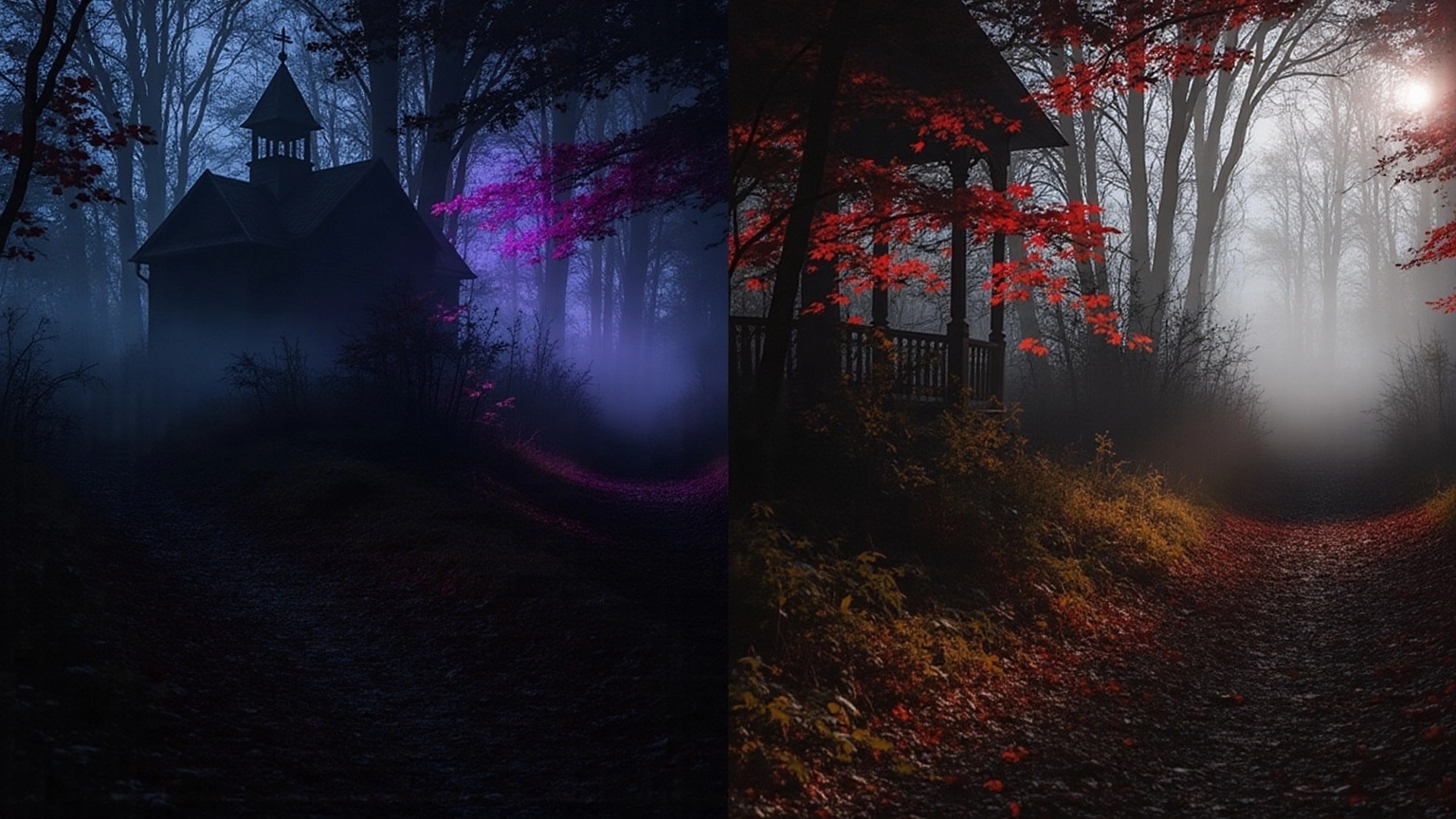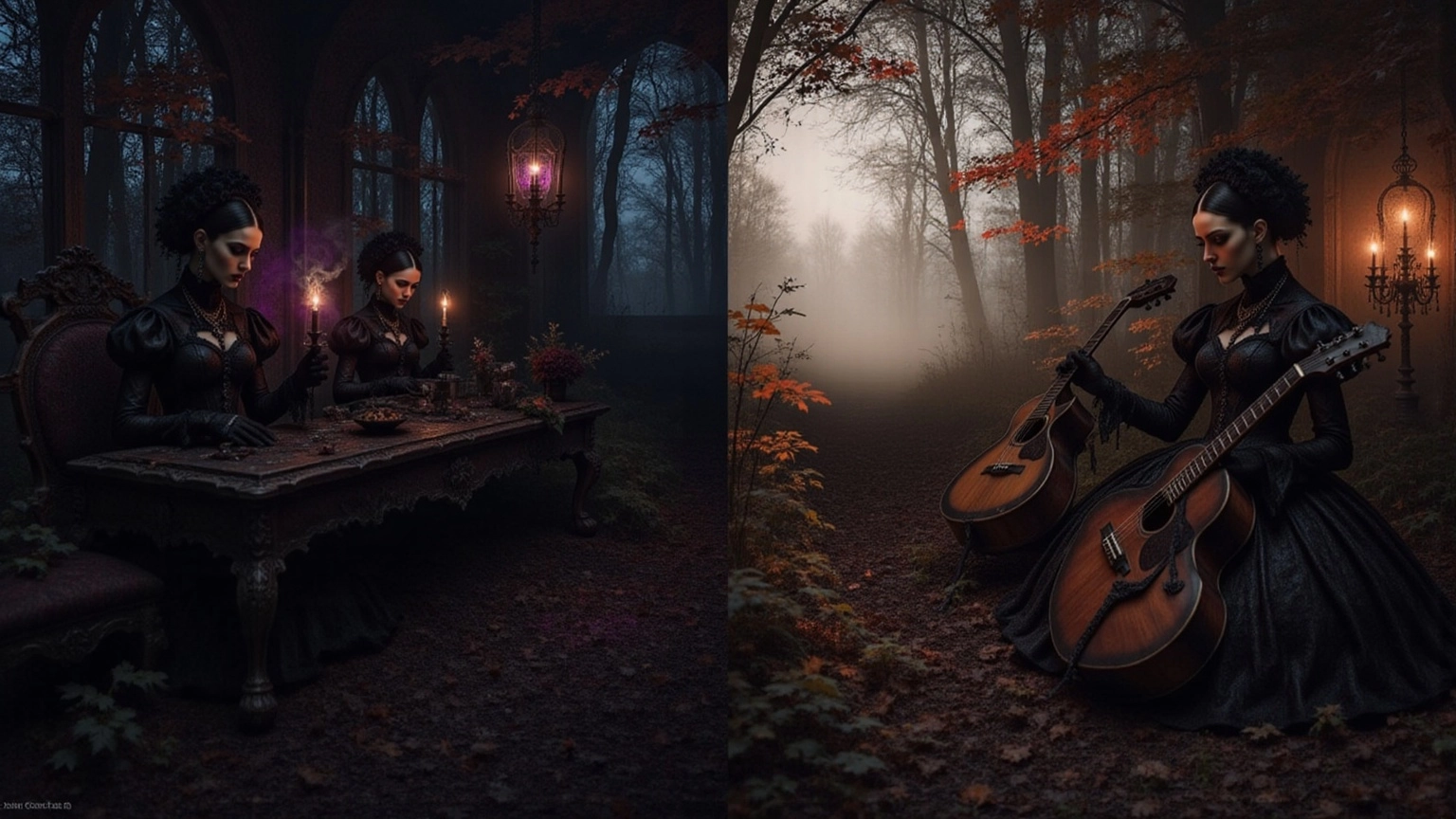
Gothic Country vs. Traditional Country: A Comparative Analysis
Share
Overview
Gothic Country and Traditional Country music—two worlds collide. One dances in shadows, the other basks in the sun. Gothic Country plunges into dark, twisted tales, where haunting melodies echo the struggles of alternative lifestyles. It’s a siren song for the misfits, the dreamers, those who find beauty in the bleak.
In stark contrast, Traditional Country wraps you in a warm embrace, spinning relatable stories that resonate with community and connection. It’s the soundtrack of shared experiences, a heartfelt narrative that draws listeners in, creating bonds that transcend time and space.
So, which path will you choose? Will you wander through the gothic labyrinth of complex narratives, or will you revel in the comforting embrace of familiar tales? Each genre beckons, inviting you to explore its depths and discover the stories that shape our cultural landscape.
Introduction
In the sprawling realm of country music, two fierce genres clash, each serving a unique auditory experience and thematic journey.
- Gothic Country ensnares with its haunting melodies and dark tales, pulling listeners into a realm where the macabre dances with musical artistry.
- Meanwhile, Traditional Country wraps you in the warmth of everyday life, celebrating love, loss, and community through its familiar sound.
As these genres morph and shift, their stark differences not only weave a rich tapestry of American music but also echo the diverse experiences and emotions that resonate deeply with audiences. Dive into their thematic and stylistic contrasts, and you'll uncover the profound cultural impact each genre wields, illuminating the intricate complexities of the human experience through song.
Defining Gothic Country and Traditional Country
This genre of folk music is a wild concoction, blending early jazz, gospel, Americana, dark rock, and post-punk into a haunting tapestry that reflects the essence of gothic country. Its lyrics plunge into the abyss, grappling with death, loss, and the macabre, resonating with the themes of gothic country.
In stark contrast, classic rural music is steeped in the folk traditions of rural America, with simple melodies and storytelling lyrics that cradle themes of love, heartbreak, and the mundane. Conventional folk music strums to the sounds of acoustic guitars, banjos, and fiddles—producing a soothing, recognizable serenade.
As Patsy Cline, the First Lady of Country Music, once whispered, "There is no greater pleasure than to hear people say they love your music," capturing the emotional depth that resonates in classic genres.
While dark folk invites you to confront life’s complexities through a lens of mystery, gothic country envelops you in a nostalgic embrace of relatable experiences. This stark thematic divergence sets the two apart, with Dark Folk beckoning listeners into a world of elegance and enigma, while Classic Folk offers a warm refuge.
Moreover, the case study 'Darc Arts as a Lifestyle' illustrates the convergence of gothic aesthetics and wellness, highlighting the themes of gothic country and dark music while enriching the narrative of this distinctive genre.
Are you ready to dive deeper into this captivating world?

Exploring Thematic and Stylistic Differences
The thematic chasm between Southern architecture and conventional folk music? It's stark. This genre dives into darker tales, weaving horror and existential dread, while the classic style dances around love, family, and rural life. Picture this: minor keys and eerie melodies swirl together, creating an atmospheric sound that pulls at your heartstrings, evoking sadness and reflection. Now, contrast that with Conventional Folk, where major keys and upbeat tempos reign, radiating joy and community.
Instrumentation? It’s a wild ride. The architectural style might throw in electric guitars and synthesizers, while Traditional styles cling to acoustic instruments, preserving that timeless sound. These thematic and stylistic differences don’t just define each category; they shape their audiences and cultural significance.
Artists like J.D. Wilkes of The Legendary Shack Shakers shout out the importance of authenticity in dark music, battling to keep cultural heritage alive against the tide of popular trends. This strikes a chord with listeners craving a deeper connection, celebrating unique narratives and experiences. As styles continue to merge, the distinct traits of Folk music stand as a testament to its rich cultural tapestry. Take, for instance, 'Feds on the Highway' by The Baptist Generals, released in 2003—this track embodies the modern roots of Americana, showcasing its evolution and relevance in today’s music scene.
Moreover, the 90s music scene's fusion of styles has left an indelible mark on modern sounds, enriching dark Americana. 'American Sinner' blends gothic country elements with political commentary, amplifying the thematic depth of this genre and revealing its intricate nature. Ready to dive deeper into this sonic landscape?
Audience Reception and Cultural Impact
This genre has carved out a fiercely loyal following, drawn to its bold blend of dark motifs and musical innovation. It captures the hearts of those who embrace alternative lifestyles and subcultures, especially those who resonate with the gothic country aesthetic. The cultural impact of Gothic style is palpable, rippling through modern artists eager to push the boundaries of conventional categories.
In stark contrast, Classic Folk casts a wider net, often celebrated in popular culture for its relatable themes and nostalgic sound. Its cultural resonance is profound, echoing the values and experiences of rural America, weaving a rich tapestry of community and shared identity among its listeners.
Both genres, while distinct, contribute to the vibrant mosaic of American music, with gothic country providing a unique lens through which to explore societal narratives. So, which side do you lean towards? The shadows or the sunlight? The choice is yours—dare to dive deeper.

Key Takeaways from the Comparative Analysis
Gothic country style and Traditional style are two distinct yet intertwined threads in the tapestry of rural music. The Gothic genre lures you in with its dark themes, haunting melodies, and atmospheric soundscapes. It's a siren song for those who crave artistic expression and embrace alternative lifestyles. Here, the complexities of human emotion unfold, drawing listeners into a shadowy realm where stories and shadows dance.
On the flip side, Conventional Rural music stands firm in folk traditions, rich with relatable storytelling that celebrates the everyday life of the countryside. Its narratives resonate widely, echoing the joys and struggles of shared experiences. The authenticity and simplicity of Traditional Music wrap around listeners like a warm embrace, forging a deep connection to their own lives.
Together, these genres carve out a significant space in the cultural landscape of music, offering a spectrum of narratives and emotional journeys. The influence of gothic country resonates with contemporary artists who dare to embrace its aesthetic, challenging the status quo of traditional sounds and themes. Delving into these differences enriches our understanding of music, revealing the evolving nature of cultural expression and how each genre mirrors the intricate tapestry of human experience.
Conclusion
Gothic Country and Traditional Country collide in a captivating dance of themes and styles, reshaping the landscape of country music. Gothic Country lures you in with haunting melodies and dark tales that plunge into the depths of human emotion, daring listeners to face life’s shadows. In stark contrast, Traditional Country wraps you in a warm, familiar embrace, celebrating the beauty of everyday moments through relatable storytelling and simple tunes. This stark divergence not only distinguishes the two genres but also showcases their unique threads woven into the cultural fabric of American music.
These genres cater to distinct audiences, each fulfilling different emotional cravings. Gothic Country pulls in those who revel in alternative lifestyles and artistic expression, while Traditional Country strikes a chord with a wider crowd, nurturing a sense of community and shared identity. The cultural reverberations of these genres are profound, reflecting and shaping societal narratives, each offering a unique lens to navigate the human experience.
Ultimately, grasping the nuances between Gothic Country and Traditional Country amplifies our appreciation for the rich narratives and emotional landscapes that music unveils. As these genres morph and inspire contemporary artists, they echo the intricate complexities of life, expressed through song—reminding us of music's enduring power to forge connections in a fragmented world.
Frequently Asked Questions
What is gothic country music?
Gothic country is a genre of folk music that blends early jazz, gospel, Americana, dark rock, and post-punk, characterized by haunting lyrics that explore themes of death, loss, and the macabre.
How does gothic country differ from traditional country music?
While gothic country delves into darker themes and complex emotions, traditional country music is rooted in the folk traditions of rural America, focusing on simple melodies and storytelling about love, heartbreak, and everyday life.
What instruments are commonly used in traditional country music?
Traditional country music typically features acoustic guitars, banjos, and fiddles, creating a soothing and recognizable sound.
What themes are prevalent in dark folk music?
Dark folk music invites listeners to confront life's complexities through a mysterious lens, often exploring themes that resonate with gothic aesthetics.
How does the case study 'Darc Arts as a Lifestyle' relate to gothic country?
The case study illustrates the convergence of gothic aesthetics and wellness, highlighting themes of gothic country and dark music, enriching the narrative of this distinctive genre.
What emotional experience does classic folk music provide?
Classic folk music offers a warm refuge with its emotional depth, resonating with listeners through relatable experiences and storytelling.
